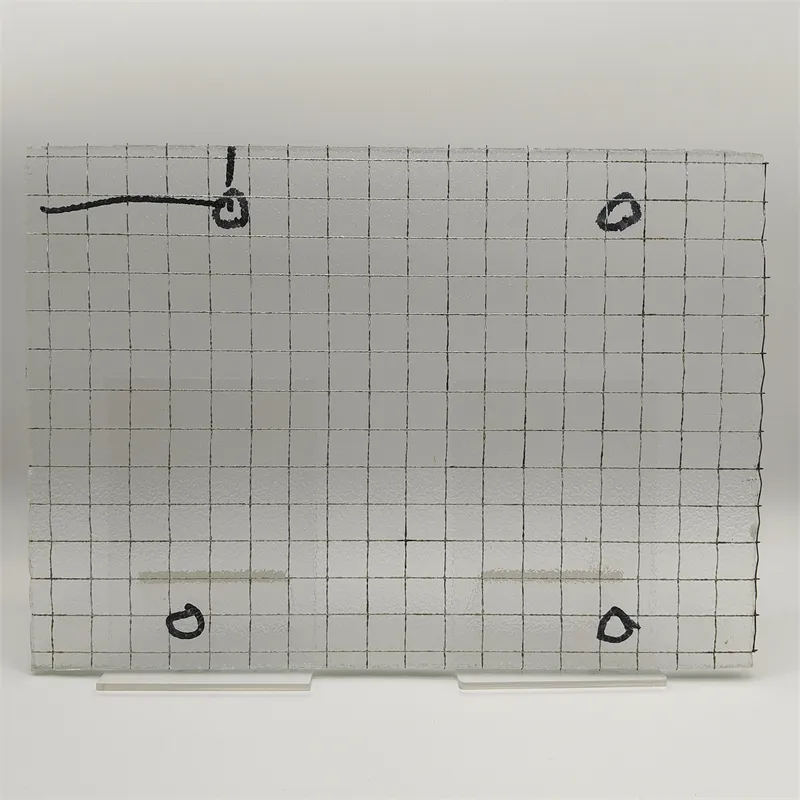Dec . 06, 2024 19:45 Back to list
float glass sheets
The Versatility and Benefits of Float Glass Sheets
Float glass sheets have become an indispensable material in modern architecture and interior design due to their unparalleled clarity, smoothness, and versatility. This unique product, developed in the mid-20th century, has drastically changed the way we think about windows, facades, and a multitude of applications in both residential and commercial settings. In this article, we will explore the manufacturing process, advantages, and various applications of float glass sheets.
Manufacturing Process
The production of float glass sheets begins with a meticulous process that involves melting raw materials, primarily silica sand, soda ash, and limestone, in a furnace. The molten glass is then poured onto a bed of molten tin, which allows it to spread evenly and form a flat sheet. This method is called the “float process,” hence the name float glass. The tin provides an ultra-smooth surface, helping to produce sheets of glass with high optical clarity. After cooling, the glass is cut into various sizes and can be further processed to enhance its strength and functionality, such as through tempering or laminating.
Advantages of Float Glass Sheets
1. Clarity and Transparency One of the most significant advantages of float glass is its superior optical clarity. Float glass sheets have minimal distortions and bubbles, making them ideal for applications where visual clarity is paramount, such as in windows and glass doors.
2. Versatility Float glass can be used in a variety of settings, from residential homes to commercial buildings, and is suitable for numerous applications including mirrors, tabletops, and display cases. Its versatility extends to the possibility of coloring, coating, or adding additional features such as UV filtering or low-emissivity coatings to enhance performance.
3. Cost-Effectiveness Compared to other forms of glass, float glass sheets are relatively economical to produce and purchase. This cost-effectiveness makes them a popular choice for both large-scale construction projects and smaller home improvement initiatives.
float glass sheets

4. Customization Float glass sheets can be manufactured in different thicknesses, sizes, and finishes, allowing architects and designers to customize their applications to fit specific aesthetic or functional requirements.
5. Durability While standard float glass is somewhat fragile, the ability to enhance its strength through processes like tempering means that it can be used in various demanding environments. Tempered float glass, for example, is five to seven times stronger than standard glass and breaks into small, less harmful pieces, which make it a safe choice for both buildings and vehicles.
Applications of Float Glass Sheets
The applications of float glass sheets are virtually limitless. In architecture, they are widely used for constructing facades, skylights, and windows, offering both natural light and aesthetic appeal. Large expanses of float glass are often seen in modern buildings, where they contribute to energy efficiency by maximizing daylight and reducing the need for artificial lighting.
In the realm of interior design, float glass sheets are employed for various purposes such as tabletops, shelving, and shower doors. Their elegant appearance and ease of maintenance make them favorites among interior designers and homeowners alike. Additionally, float glass is also used in commercial environments, including storefronts and display cases, where visibility and product presentation are crucial for attracting customers.
Furthermore, advancements in technology have led to the development of float glass with special features. For instance, low-emissivity (Low-E) glass significantly reduces heat transfer, contributing to energy savings in heating and cooling. Similarly, float glass with insulating properties can enhance thermal performance in buildings, further emphasizing its functional capabilities.
Conclusion
In summary, float glass sheets are an essential material that seamlessly combines aesthetic appeal with practical functionality. Their advantages—clarity, versatility, cost-effectiveness, customization, and durability—make them highly sought after in a variety of industries. Whether used in architectural design, interior decoration, or commercial applications, float glass continues to impress with its ability to meet modern demands while enhancing the beauty and efficiency of spaces. As technology evolves, we can expect to see even more innovative applications and improvements in float glass, solidifying its place as a cornerstone in the world of materials.
-
Safety and Style with Premium Laminated Glass Solutions
NewsJun.24,2025
-
Reinvents Security with Premium Wired Glass
NewsJun.24,2025
-
Premium Float Glass Line for Modern Architecture
NewsJun.24,2025
-
Low Emissivity Glass for Energy-Efficient Architecture
NewsJun.24,2025
-
High-Performance Insulated Glass Solutions for Modern Architecture
NewsJun.24,2025
-
Elevates Interior Style with Premium Silver Mirror
NewsJun.24,2025
Related PRODUCTS














